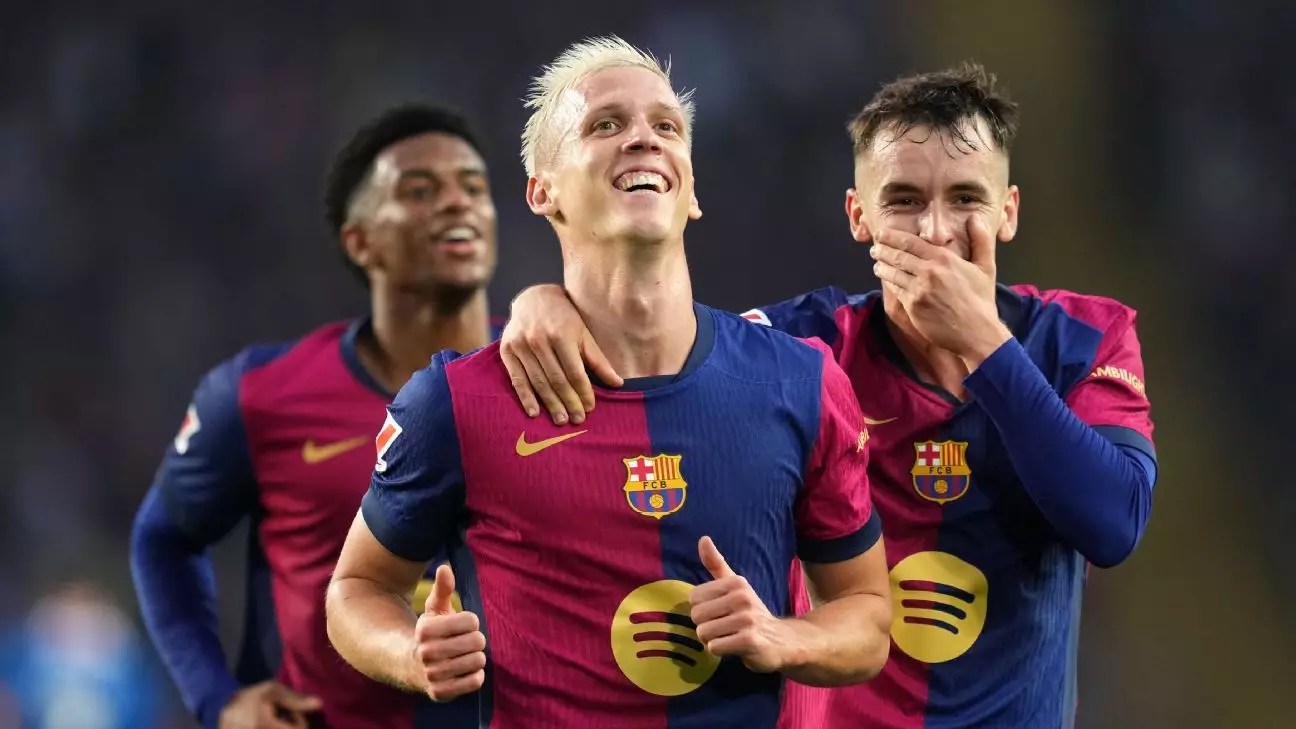The saga surrounding FC Barcelona’s attempts to register Dani Olmo and Pau Víctor for the ongoing season has become a significant talking point in Spanish football. After a rejection from both LaLiga and the Royal Spanish Football Federation (RFEF), these complications not only highlight the challenges clubs face regarding financial fair play (FFP) but also delve into the regulatory frameworks governing player registrations in Spain.
Barcelona’s request to re-register Olmo, a €60 million acquisition from RB Leipzig, and Víctor for the second half of the season ended in disappointment. The players, who were absent from the squad for a crucial Copa del Rey match against lower-tier Barbastro, are left in limbo. According to a statement on Saturday, the governing bodies concluded that the club did not meet the necessary prerequisites for registration, which had originally been based on a financial compliance requirement. As a result, it seems both players will remain sidelined until after the summer transfer window.
This situation has arisen after Barcelona failed to provide adequate documentation to prove compliance with LaLiga’s FFP regulations prior to the December 31 deadline. Although the club submitted the required information on January 3, it arrived too late to facilitate the registration of Olmo and Víctor. This delay has sparked significant criticism, not just of the club’s administrative practices, but also of the inherent challenges posed by navigating through stringent financial regulations.
The backdrop to this event is the stringent financial management landscape that clubs in Spain and indeed across Europe must navigate. LaLiga’s FFP regulations are designed to ensure that clubs operate within their financial means, which has become increasingly critical in today’s economically challenged football environment. Barcelona, having already faced a multitude of challenges regarding its financial health in recent years, finds itself caught between the need for significant outlays to bolster the squad and the pressing need to comply with these regulations.
Barcelona’s case signifies the importance of solid and timely financial planning. The club attempted to leverage a rule allowing them to use a portion of the salary budget for an injured player—Andreas Christensen—in order to register Olmo and Víctor temporarily. However, this maneuver backfired, exposing the limitations of such strategies in the realms of real-world execution and regulatory compliance.
In the wake of the rejection, Barcelona has announced plans to appeal the ruling at Spain’s supreme sports court, the Consejo Superior de Deportes (CSD). The club’s statement reflects a robust disagreement with the decision, indicating their intention to fight for the registrations of Olmo and Víctor, a move that could set a precedent in how future financial compliance cases are handled by sports authorities.
However, looking ahead, the players themselves find themselves faced with a perplexing dilemma. Both have clauses in their contracts allowing them to leave for free if they remain unregistered, but sources close to them have indicated that they are not actively looking to activate these clauses. This indicates a level of loyalty and hope to still feature for the club despite the complications.
Yet the prospect of a short-term loan is complicated by the lack of federative licenses, meaning that Barcelona cannot broker such deals for Olmo and Víctor. Further complicating matters is the potential for rescinding their contracts to facilitate new signings elsewhere, which introduces risks and uncertainties into a situation that is already fraught with tension.
Despite the bureaucratic hurdles and ongoing uncertainties, both players have had solid performances on the pitch this season. Olmo has made 15 appearances for Barcelona since his return, scoring six goals, while Víctor has contributed two goals in 17 outings, albeit with limited starts. Their contributions indicate they are valuable assets to the team; thus, the administrative setbacks feel even more acute for both the club and the players.
As Barcelona grapples with these regulatory challenges, the situation serves as a clarion call regarding the necessity of rigorous financial planning and management for clubs aiming to thrive in the modern football landscape. The implications of this case go beyond just Olmo and Víctor; they resonate throughout the entire sport, underscoring the entrenched intersection of finance and athletics in the beautiful game. As the club moves forward, it may find itself at a crossroads where financial prudence and competitive ambition must be balanced more than ever before.


Leave a Reply